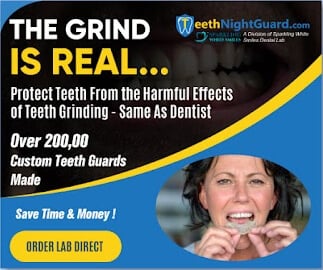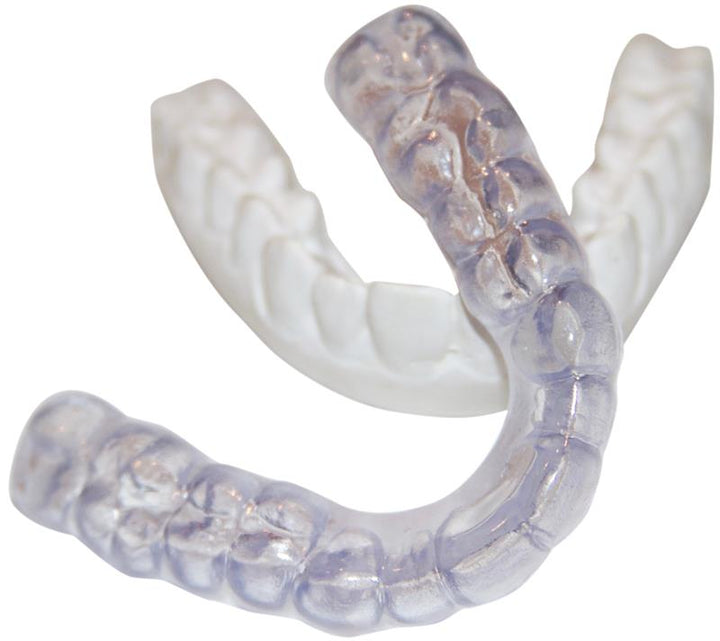Do you find yourself spending countless hours scrolling through social media feeds or binge-watching Netflix series? Are you constantly glued to your smartphone, tablet, or computer screen? If so, it's time to ask yourself: is technology overload causing you to grind your teeth? In this blog post, we'll explore the link between excessive screen time and bruxism (teeth grinding), and share tips on how to manage your tech habits for a healthier smile. So sit back, relax (but not too much!), and read on.
Introduction to Teeth Grinding
If you’re someone who suffers from teeth grinding, you may not even be aware that you’re doing it. Teeth grinding, or bruxism is a condition that can be caused by stress or anxiety, and it can have a number of negative consequences for your oral health. For starters, teeth grinding can wear down the enamel on your teeth, making them more susceptible to cavities and other problems. It can also cause headaches, jaw pain, and earache. If you think you might be grinding your teeth, it’s important to talk to your dentist about it so they can help you find a solution.
Causes of Teeth Grinding
There are a few different causes of teeth grinding, but the most common is stress. When we're stressed, our bodies tend to tense up, and that includes the muscles in our jaws. clenching and grinding our teeth is a way to release that tension. Other causes can include misaligned teeth, which can put uneven pressure on the jaw; sleep disorders like sleep apnea or bruxism (a condition where people grind their teeth during the day); or medications that have side effects that include teeth grinding.
Technology Overload and Teeth Grinding
When it comes to technology overload, there are a number of different ways that it can manifest itself. For some people, it manifests as an inability to focus or concentrate on anything for more than a few minutes. For others, it manifests as physical symptoms like headaches or neck pain. And for some people, it manifests as teeth grinding. If you find yourself grinding your teeth more often than usual, it could be a sign that you're stressed out about something. It could also be a sign that you're using too much technology and you need to take a break from it. Either way, it's important to recognize the signs of stress and take steps to reduce it. There are a number of different things you can do to reduce stress in your life. You can exercise regularly, meditate, spend time with friends and family, or read a book. You can also try cutting back on your screen time and spending more time doing offline activities. If you find that you can't cut back on your screen time without experiencing withdrawal symptoms, then it's definitely time to seek professional help.
Statistics on Screen Time and Teeth Grinding
The average American spends over 10 hours a day staring at screens, whether it’s a computer, phone, TV or tablet. And this screen time is having a negative impact on our teeth and jaw. Teeth grinding (bruxism) is on the rise, and experts believe that the increase in screen time is partly to blame. A recent study found that people who spend more than 5 hours a day on their phones are twice as likely to grind their teeth at night. Screen time can also lead to other dental problems, such as tooth decay and gum disease. The blue light from screens suppresses the production of melatonin, which makes it harder to fall asleep. This can lead to sleep deprivation, which can then cause bruxism. If you find yourself grinding your teeth or clenching your jaw, it’s important to see a dentist. They can help you find ways to reduce stress and relax your jaw muscles. In some cases, they may also recommend wearing a mouth guard at night to protect your teeth from damage.
Ways to Combat Technology Overload and Teeth Grinding
If you're among the two-thirds of Americans who use smartphones, you may be guilty of spending too much time staring at screens. This screen time can lead to a condition called "tech neck" and can also cause you to grind your teeth. There are ways to combat technology overload and teeth grinding. To reduce your risk of tech neck, hold your phone at eye level instead of looking down at it. And to protect your teeth from grinding, try these tips:
• Wear a custom anti teeth grinding mouthguard at night. This will help prevent damage to your teeth from clenching and grinding.
• Avoid caffeine before bedtime. Caffeine can make you more likely to grind your teeth at night.
• Relax before bedtime. winding down for 30 minutes before sleep can help reduce stress and anxiety that can lead to teeth grinding.

Benefits of Reducing Screen Time
Assuming you want tips for reducing screen time: 1. Set a daily limit for yourself and stick to it 2. Keep your phone out of sight and out of reach as much as possible 3. Make a point to do something completely unrelated to technology for at least an hour each day 4. Find a hobby or activity that you can do offline 5. Get outside! Spend time in nature, go for walks, or ride your bike
Technology overload is a real issue that many of us face. We hope this article has helped you to identify if your screen time might be causing you to grind your teeth, and what steps you can take to reduce the amount of time spent online each day. Taking small steps towards reducing overall screen time can have a positive impact on both your physical and mental health, so it’s important not to overlook this issue when addressing tooth-grinding-related problems.
JOIN OUR NEWSLETTER! RECEIVE PROMOTIONS & COUPONS FOR CUSTOM DENTAL NIGHT GUARDS
INTERESTED IN BECOMING AN AFFILIATE OF TeethNightGuard.com?
Earn a 15% commission for simply sharing with your friends and family through email or social media such as Facebook, Reddit, or Twitter. Sign up and learn more here: https://www.teethnightguard.com/pages/register-affiliate-account
EXTRA DURABLE 3MM CUSTOM NIGHT GUARD - MAXIMUM DURABILITY AND COMFORT - MOST RECOMMENDED

$119.99
Item Number SWSPRO Manufacturer Sparkling White Smiles Dental Lab Rating Product Description Love this product? Share the product page link with Friends and Family. Simply copy the product page web address or this link: Custom Teeth Night Guard and post!… Read More